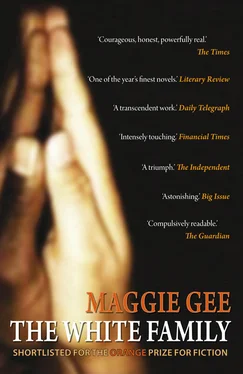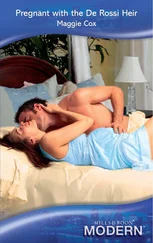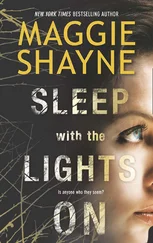‘No please go on, I’m enjoying it,’ said Thomas, and he really was, despite the appalling discomfort of the chair which the National Health must have put there on purpose to stop any visitors staying too long. The lights were coming on in the ward.
This, he thought, is the real Alfred. Darren’s just worked himself into a state. It’s Susie’s fault. Pure … psychobabble. He eased his legs; the chair farted.
‘Next day I got up and it was English summer. I couldn’t believe the noise of the birds. I had spent the night with my uniform on, and for some reason I got up, put my hat on, I suppose because I’d have felt naked without it, a great sombrero, it was, with a feather, a little cockade thing stuck on the side, not exactly the thing to wear in Hillesden … But I was in no state to realize. And I walked to the Park as if I was asleep. I didn’t decide, I just found I was off there. Like a pigeon, I suppose. Homing. Homing. I hadn’t had breakfast, not even a cuppa. And I walked up the hill —’
Alfred couldn’t continue. Fifty years later he still wanted to weep.
(It was green, so green, and the smell of cut grass, and the shade of the oak trees, dappled shade, rippling over the hill in the breeze, and the wood pigeons billing, it was all like a dream … like the dreams I had dreamed in Palestine, but now it was real, the men had come home. But I lay on the hill, and I felt like a ghost. It was all the same, but I was not. No one knew me now. I was no longer Alfred, but a killer sent from another world, and if anything moved I should have to shoot it … The hill looks out over the burial ground. There seemed to be millions of graves in the sunlight, white and grey stones marching on forever, blurring as I looked across the sweep of the graveyard, as if they’d seeded like weeds in the war years … How many bodies of boys I had known were lying under the ground somewhere, with nothing to mark them, far from home? — names I had known, lost, forgotten — and the peace and the sunshine had come too late? I felt — queer, I felt very alone, I felt guilty, although God knows I had done my bit. But soon as I lay down, I slept, and dozed and dreamed half the day away, waking sweaty and frightened, every so often, and being calmed by the sound of the birds. And the wind in the leaves, and walking feet, not crunching boots but peaceful feet, padding, strolling, human feet, British feet, English feet, those wonderful sounds said I had come home, now I could rest among my people, here in the grass I was safe to sleep.)
Thomas thought Alfred had nodded off, but after a second he began again.
‘I slept all morning outside in the Park. When I finally woke I felt a lot better. Almost human. I could hear children. The schoolkids must have just come out of school. The children in Palestine were different; they all looked alike, all brown with dark eyes, and they never really looked at you, and of course they spoke in their own language, a sort of screeching, jabbing noise. But this was the sound of English children —’
(I remember it as if it was yesterday. I thought quite clearly, I want a family. I’ll never die, if I have a family. I want that girl, and I want a family. I saw in that moment that that was what I’d fought for. A world where the White family could live.)
‘I went off up Hillesden High Road looking for May. I thought she might be in her father’s shop —’
(The sun was in my eyes. I hadn’t eaten since the night before. I hadn’t shaved. I was at least half-barmy, I no longer knew how to walk, I marched … I was half in the desert, although I was in Hillesden. I’d probably have frightened her to death.)
‘The great thing was, I never got there. I heard a crowd of beggars tagging behind me, beggar-kids, they always followed the soldiers, and I turned on my heel to scare them away and saw they were English children, not beggars, and I was in an English street. They were mad with excitement, shouting and laughing. “Cowboy!” they were shouting. “Look, here’s a cowboy!” I’d forgotten I’d got my stetson on … I was a hero to them. Well, perhaps I was a hero. We took it for granted, but we all risked our lives.’ He stopped for a moment, to steady his voice. ‘After a bit, I realized I’d scare her to death, turning up in that kit like a lunatic. I turned round and marched home, took my hat and boots off and went out like a light on Mum’s settee. They tell me I slept for three whole days, but I reckon it was one, at most.’
‘I like that story,’ said Thomas. ‘Amazing. My generation’s never seen things like that.’
‘The war did pull us together, in a way. Something we all went through together. All shoulders to the wheel, as they say.’
‘Are we the selfish generation?’
‘You’re not too bad,’ said Alfred, kindly. But he thought to himself, the lad is right. Darren and Thomas are boys, not men. They’ve never had a chance to find out what matters. Never been tested. Had it too easy. Nothing was easy for me and May. We waited for years, saving up to be married. If a thing’s worth having, it’s worth waiting for. ‘Things fell apart, after the war. We were very hopeful, in the fifties. I don’t know what happened. People got greedy —’
‘When was the coronation? Fifty-three?’
‘Coronation year,’ said Alfred. ‘Lovely … I think they were still dancing, in fifty-three. Dancing in the Park. May and I were newly married … We could do what we liked, and we hadn’t got kids. It seemed like we’d died and gone to heaven. Soon after, some idiot set a fire in the thatch of the bandstand, and that put a stop to it. Nice while it lasted.’ He smiled. ‘It does me good, remembering. They were great days. Tremendous days … You young ones think we didn’t know how to have fun, but we did, you know.’ And he winked at Thomas. ‘May and I danced with the best of ’em.’
(She changed towards me when I came back. Probably because I had lived a bit. I went away a stupid boy who had never been further than Blackpool in summer. And she wanted something better than that. My May was a reader even then … I had something about me, when I came back, so she told me. I was tense as a watch-spring and trigger-happy and a stone too thin and burned practically black, but I’d been to the other side of the world. I’d seen the sun set over Jerusalem. I’d had — glorious times. We were like princes, sometimes, young and fit and fancy-free … I’d smoked kif and bumped about on a camel and heard the muezzin wailing their prayers, though it sounded like demons howling, to me. I’d seen men dying, and nearly died. I’d kept the peace; that was how May saw it. I’d lived in a desert that went on forever. It was hell, of course, but not to May.)
‘I took May dancing, my first weekend home. I’d borrowed a suit from my elder brother. Everyone put on the dog, in those days — you didn’t go dancing in a leather jacket —’
(And the girls were so pretty in summer dresses that were really dresses, tiny waists, full skirts, like flowers, like poppies, whirling round and round in the summer dusk –
But I was with May. She was in my arms. May and I never left each other. She wore blue, I think, with a tiny print, forget-me-nots, was it? — and her eyes were so blue, and she gazed at me as if I was a film star, and whispered ‘Alfred’ into my shoulder, I shivered with disbelief to feel it, a woman’s warm sweet breath on my skin, because while I was away she had turned into a woman, so white and rounded and serious and beautiful that I was afraid — till the tempo changed and the dance band let rip with ‘In the Mood’ and all of a sudden I was dancing like crazy, copying the spiv with the pin-striped jacket who was jitter-bugging with the girl next door, ‘Come on May,’ I shouted, ‘Come on, we can do it,’ and we did, although I’d never done it before, I whipped her around till she was flushed and laughing and fell into my arms when the music slowed down, and I silently swore I would love her forever, cheek to cheek under the rustling plane-trees and the blue sky of evening we no longer had to fear, cheek to cheek under the same pale moon that had made me long for her in Palestine.
Читать дальше












